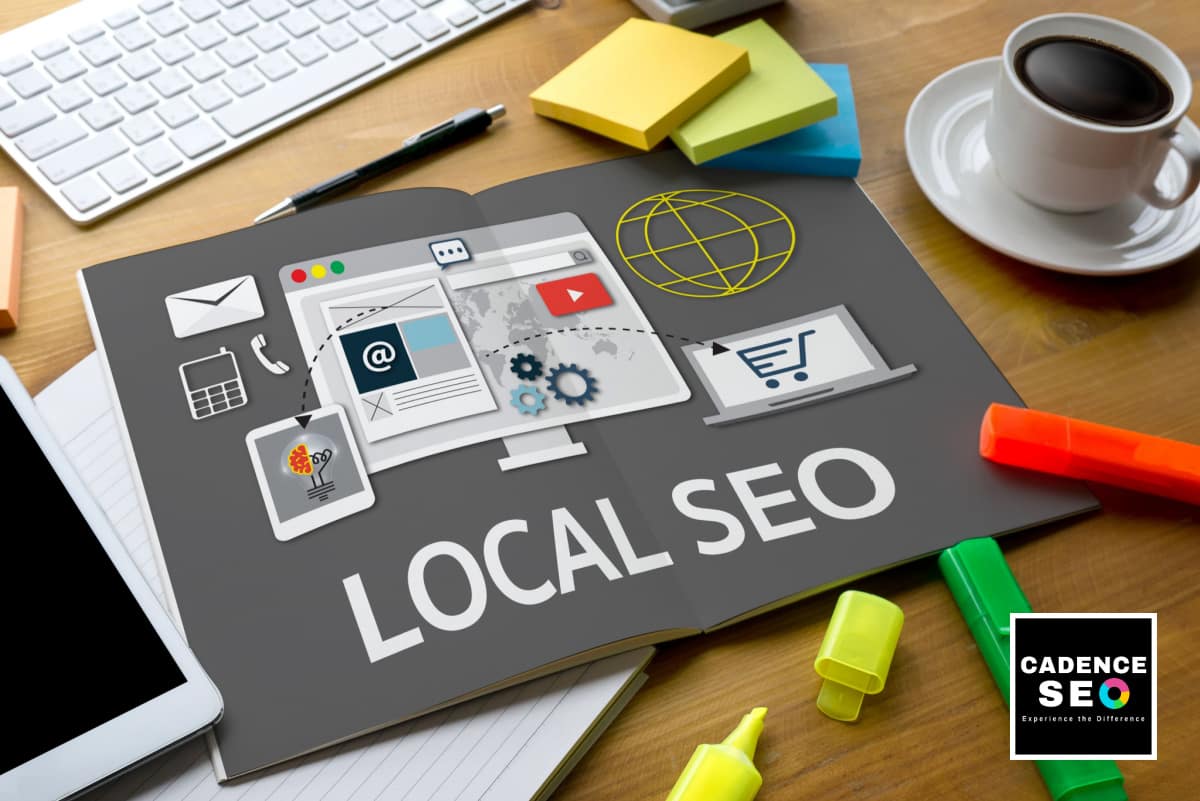If you’ve ever tried searching for a local business, such as a restaurant or a spa, you know how frustrating it can be. You’ll probably see several listings that don’t even include the name of the business listed in the title, and even then you might have trouble finding anything useful about these companies.
Local SEO is one of the most important and often times, low-ranked or not-at-all optimized aspects of Search Engine Optimization (SEO). Many companies run their online campaigns out of a headquarter office and never consider their local customers aren’t seeing them in Google Places.
This article provides some tips to improve your local SEO strategy.
What is local SEO?
When a user searches for something on Google, they are presented with results relevant to their query. Local SEO is the process of optimizing a website to rank higher in local search results. These results appear when someone searches for a specific business or service in their area and also includes maps, photos, reviews and more.
Local SEO can be broken down into two main categories:
Local Directories
Local directories are websites that list businesses by category and location, such as Yelp or Angi (formerly Angie’s List). You’re probably familiar with these sites — when you look for a dry cleaner in your area, you go to one of these directories and find a list of nearby dry cleaners ranked by customer reviews, distance from your location or other factors.
Local search engines do this too: Google My Business allows businesses to create their own listings on Google Maps for free (though there are paid add-ons), Yelp has its own internal algorithm for ranking businesses based on user reviews, etc.
Citations
Citations are links that point back to your website from other places online—for example if someone mentions “My favorite local bakery is Cupcake Central!” they might link directly back to cupcakecentralbakery.com with an anchor text like “Local Bakery” if they felt it was relevant enough as part of the sentence structure around it.
Why is local SEO important?
While SEO can be difficult, it’s also one of the most effective ways to grow your business. Why? Because it increases your visibility in local search results, which means customers can find you when they’re searching for businesses like yours!
Local SEO is important because it helps you convert more customers and get more traffic to your website. Your website should be optimized for mobile devices so that it’s easy for users to access from any smartphone or tablet device. It should also have an easy-to-read call-to-action (CTA) button on each page that encourages visitors to contact you or start shopping right away—you want them to stay on the site as long as possible!
9 Local SEO Tips To Improve Your Local SEO Strategy
SEO isn’t just science and mystery, it’s also an art form. You have to remember the various factors that can’t be tracked, but that are critical for improving your rankings.
To help you out, here are some local SEO tips to improve your strategy.
Optimize title tags.
In addition to making sure that your title tags are optimized for both desktop and mobile users, try not to repeat yourself too much when writing them. It’s okay if one page has multiple version of a single keyword. However, having 10 different pages with “cleaning services” as their titles isn’t good because Google will begin penalizing those pages for being too spammy (and people won’t trust them).
You should make use of the H1 tag when it comes to optimizing your site’s title. This is because an H1 tag allows you to specify a word or phrase that will appear in big, bold letters at the top of every page on your website. By using keywords related to your business, you can increase the likelihood that people who search for products or services like yours will be able to find you more easily.
Create a Google My Business account.
Use Google My Business and make sure that all of your business information is updated and accurate. If you’re a local business, Google My Business is a free tool to help you manage your online presence across Google, including Search and Maps. It’s also a way to connect with customers and build your online reputation.
Here are some tips for getting the most out of your Google My Business account:
- Sign up for a free account. If you already have an account, sign in by clicking “Sign in.” You’ll see a welcome screen that explains how Google can help build awareness of your business through search results on desktop computers, mobile devices, etc.
- Assemble all of the information needed before proceeding: business name(s), address(es), phone number(s), website URL(s). You’ll need this information when setting up each listing type
Put your business in local directories.
One of the most important ways you can boost your local SEO strategy is by finding and listing your business in local directories. Create a Google+ Local page for your business so that people can easily find you when searching Google’s results pages (RPs). Submit reviews on sites like Yelp and TripAdvisor so that more people will be able to find your business.
When you create a website for your business, it’s important to make sure it’s optimized for local search results. Try to get a few reviews on each site, so that your profile will look more comprehensive and trustworthy.
Make sure all info is consistent across all platforms.
It’s important to make sure that all of your listings are consistent across platforms. The more consistent they are, the easier it will be for customers and search engines to find you.
If you have an address listed on one platform but not another, then it’s going to be harder for people searching for your business on Google Maps or Apple Maps (for example) to find you.
Take advantage of Google Posts.
This is a new feature from Google that lets you post messages to your business listing on Google Maps. You can use it to share information about your business or to promote a sale or event. Your posts will appear below the map. It’s important to include great photos and ensure the text has high-quality formatting so that customers are encouraged to click through and learn more about what you’re doing at this location in particular.
In addition, using Google Posts is an easy way for you to engage with customers who have already expressed interest in what you do by searching for your business online.
Get active on social media.
Social media marketing is a great way to increase your brand awareness, connect with customers and build relationships. Social media can also be used to get feedback on your products, services, and industry news. By having an active presence on social media, you will attract more people interested in what you have to offer.
In addition to providing valuable information directly related to your business or industry, social media can also be used to monitor your brand reputation online. Monitoring the performance of your website’s search rankings is key in ensuring that it ranks highly against competitors’ sites in Google SERPs (Search Engine Results Pages).
Show off reviews and testimonials.
As with any business, reviews are a crucial part of your local SEO strategy. They can help you build credibility and trust, making people more likely to visit your business or use your service.They’re also another way for potential customers to hear about the great experience they had at your establishment.
In addition to soliciting reviews, there are ways to proactively encourage customers who come in contact via email or phone calls—or even just those who pass by on foot—to leave feedback about their experiences with you online:
- Offer incentives for leaving positive feedback and/or post-visit surveys after completing transactions (this incentivizes customers into thinking about leaving positive reviews)
- Make it easy for clients so that it doesn’t seem like extra work on their end (make sure all information is available when someone needs it)
A good review will help boost the reputation of both yourself as an individual business and that particular location—which can have positive effects on other locations if they share the same name or brand identity.
Get Your FREE SEO Audit Today
I think you can see what we’re getting at here: doing great SEO for local businesses isn’t that hard if you know how to go about doing it. Of course, SEO can (and does) get much more complex than this, but at its core, it’s not that difficult. If you want to take your local business to the next level in terms of SEO, check out the resources and tips we’ve included above.
If you want to speak with an SEO expert about how to improve your website’s performance and raise your chances of a successful local search marketing strategy, don’t be afraid to reach out. We can tell you more about how our team can help you optimize your website for local search engines and directories.
To schedule a free consultation with one of our highly-trained professionals, contact us for a free audit.






